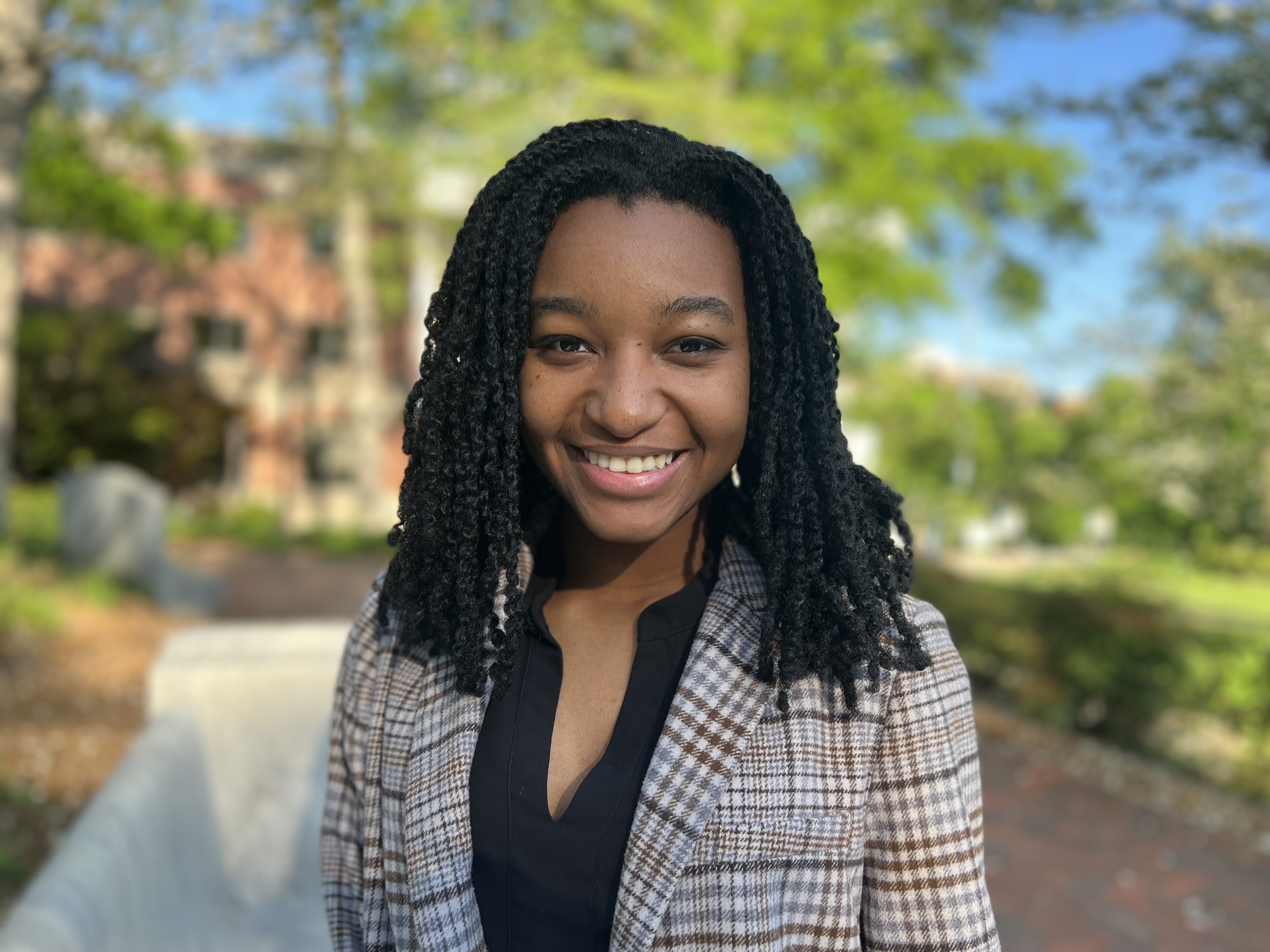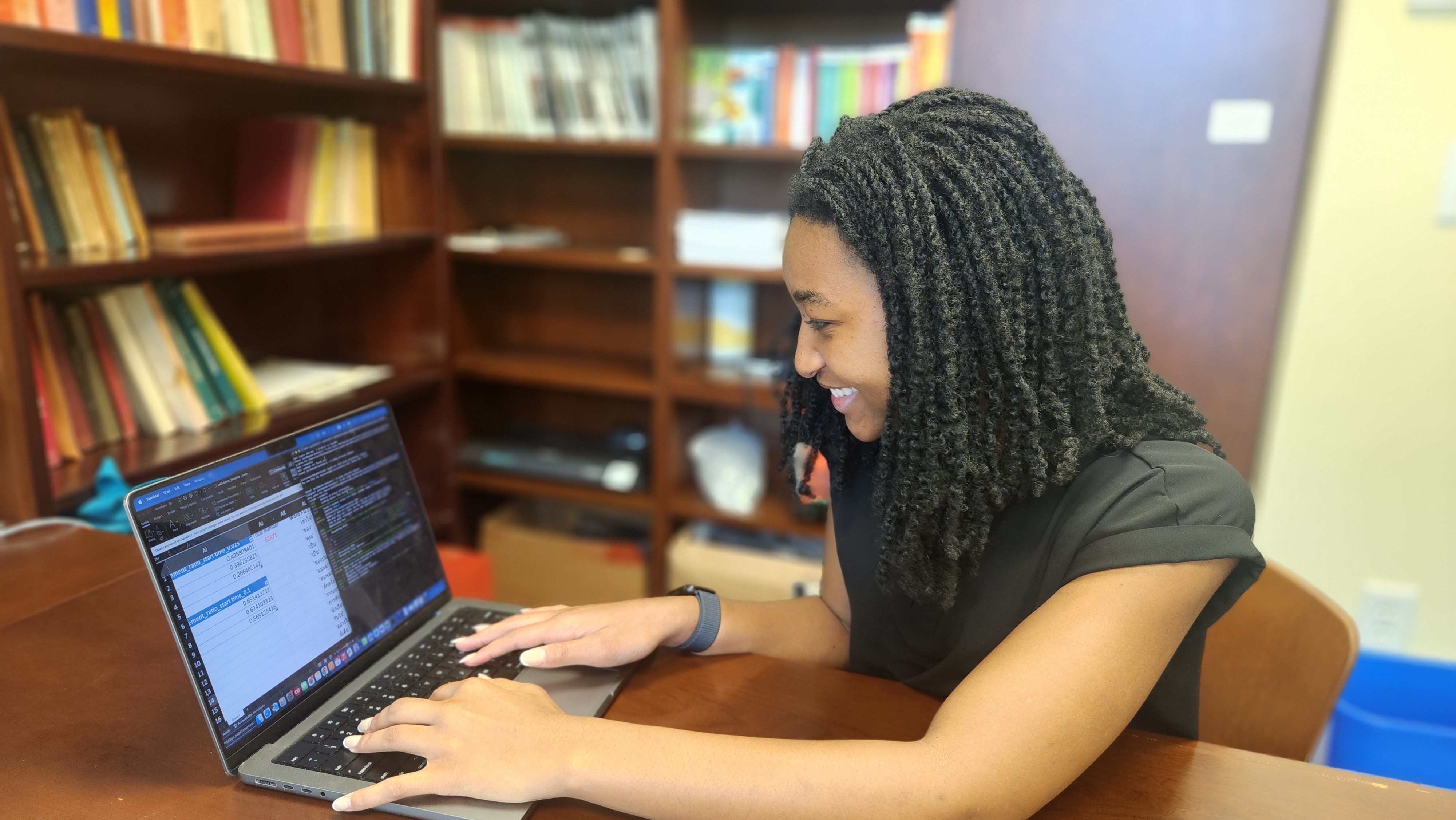Joni Isbell is a third-year Computer Science major studying cross-language alignment with Dr. Hongchen Wu. She also studies LLM suspense detection with Dr. Mark Riedl.

How long have you been an undergraduate researcher at Georgia Tech?
I have been doing research for a full year. I started my research journey with Dr. Hongchen Wu during my summer semester of my sophomore year in 2024. A semester later, I joined Dr. Mark Riedl’s Entertainment Intelligence and Human-Centered AI (EI & HCAI) lab.
How did you get involved with undergraduate research?
Throughout my time at Georgia Tech, I have been exposed to computer science research through my job as a research communication student assistant at the College of Computing, engaging with my professors, and connecting with my peers. After taking one of Dr. Wu’s Chinese Mandarin courses, I looked into her research and was fascinated. I reached out to learn more and have been working with her ever since. I also wanted to continue to explore different topics within computational linguistics to solidify my research interests. This was my motivation to reach out to the EI & HCAI lab. Research is my passion and I am so grateful for these opportunities.
What are you working on?
Broadly, I explore how to apply linguistic and psychological concepts to computer science and I evaluate how current systems reflect these ideas.
With Dr. Wu, I am conducting cross-language alignment on Thai audio and transcripts. I am analyzing model alignment results to compare the performance of using a high-resource language vs a low-resource but closely linguistically related language as intermediate dictionaries for tonal audio.
In the EI & HCAI lab, I am analyzing industry LLM’s detection of suspense in literature. Influenced by the field Machine Psychology, I am implementing suspense detection papers and comparing human vs AI agreement. We also are conducting adversarial attacks on the models to understand what causes a divergence of agreement.

What is your favorite thing about research/researching?
I love being surrounded by such brilliant people. I really appreciate the research community and how supportive and eager to teach they are. Everyday, I learn about new topics, emerging fields, and skills I can use both in my academic and personal life.
What are your future plans and how has research influenced them?
I plan to get a PhD in Computational Linguistics. I would love to lead a research lab that focuses on the intersection of linguistic theory and computer science. Both of my mentors have greatly influenced me and I hope to one day mentor early career researchers in the same way they’ve supported me.
